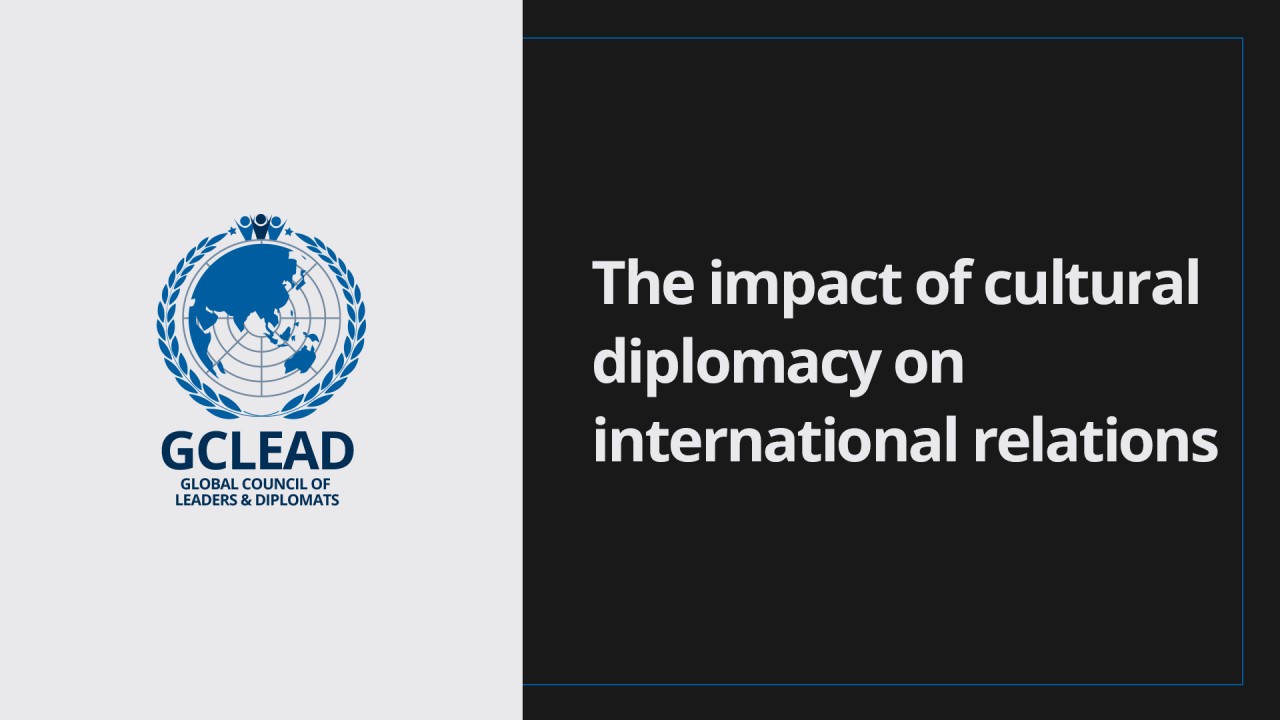
The impact of cultural diplomacy on international relations
In the intricate tapestry of international relations, the Global Council for Leaders & Diplomats (GCLEAD) recognizes the transformative power of cultural diplomacy. As a non-profit organization dedicated to linking diplomacy, business leaders, scientific minds, and societal front-runners, GCLEAD places a high premium on cultural diplomacy as a key instrument for fostering understanding, collaboration, and lasting connections on the global stage. Let's explore the impact of GCLEAD's cultural diplomacy initiatives on international relations.
Fostering Mutual Understanding
Cultural diplomacy is instrumental in breaking down barriers and fostering mutual understanding between nations. GCLEAD promotes dialogue that transcends geopolitical differences, emphasizing the shared values and cultural ties that bind diverse societies. Cultural exchanges facilitated by GCLEAD contribute to building trust and meaningful relationships between countries. Engaging in shared cultural experiences creates a foundation for stronger diplomatic ties and cooperation in addressing global challenges.
Cultural diplomacy enhances a nation's soft power, influencing perceptions and attitudes towards a country. GCLEAD believes that a positive cultural image can create goodwill and facilitate diplomatic initiatives, making it an essential tool for global leaders. GCLEAD actively supports cultural exchange programs that bring people from different nations together. These programs facilitate direct interactions, allowing individuals to gain insights into each other's cultures, fostering friendships that transcend borders.
Preserving Cultural Heritage
GCLEAD recognizes the importance of preserving cultural heritage as a means of promoting international understanding. Efforts to safeguard and celebrate cultural diversity contribute to a richer global tapestry and create a sense of shared humanity. Cultural diplomacy provides an alternative avenue for diplomatic dialogue beyond formal negotiations. Through art, music, literature, and other cultural expressions, GCLEAD encourages a more holistic understanding of nations and their people.
Cultural Diplomacy in Conflict Resolution
GCLEAD believes that cultural diplomacy plays a role in conflict resolution by fostering empathy and promoting common ground. Shared cultural experiences can be a bridge to overcoming historical animosities and establishing a basis for reconciliation. GCLEAD envisions a world where global citizens are culturally aware and appreciative of diversity. Cultural diplomacy contributes to the development of a more interconnected global citizenry that values and respects different perspectives.
GCLEAD integrates cultural diplomacy into educational initiatives, recognizing its importance in shaping the worldview of future leaders. Exposure to diverse cultures and ideas empowers individuals to become cultural ambassadors and advocates for global harmony. Cultural diplomacy can have a positive economic impact by fostering international tourism, trade, and business collaborations. GCLEAD emphasizes the economic benefits that stem from strong cultural ties and positive international perceptions.
In conclusion, GCLEAD's commitment to cultural diplomacy underscores its belief in the transformative potential of shared cultural experiences. By weaving a rich tapestry of connections between nations, the organization envisions a world where understanding, trust, and collaboration prevail over discord. As cultural diplomacy continues to be a driving force in shaping international relations, GCLEAD stands as a beacon for leaders dedicated to building a harmonious and interconnected global community.